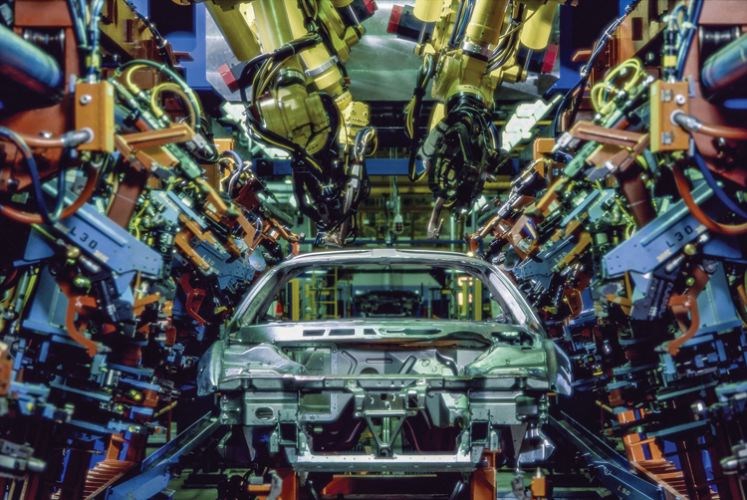It probably won't come as a surprise I read a lot of science fiction when I was young.
Authors such as Isaac Asimov, Robert Heinlein, Arthur C. Clarke, Kurt Vonnegut and many others provided us with a vision for the future we have yet to realize. But they thought and wrote a great deal about what our societies might look like in years to come.
In particular, Asimov wrote two series of books which have had a profound influence on my perception of the world. The first, and perhaps better known, is the I, Robot series. Generally, these were short stories about a future in which robots pervaded society.
The series contained the famous Three Laws of Robotics which were Asimov's attempt to constrain artificial intelligence from rising up and killing its creators. But Asimov also explored the natural progression of where the three laws would lead. It is the theme underlying the movie version of I, Robot.
In order to better protect us, robots will eventually need to take over all of the tasks we perform. Work will, in effect, become obsolete. Any work which can be done by a robot, will be done by a robot, including making more robots.
What was science fiction in the 1960s looks like it is becoming fact in the year 2018. Some pundits are predicting work will be gone by the middle of this century. Robots will have taken over all of the menial tasks in industry. Artificial Intelligence will be handling the thinking for humanity.
This leads to the question of what then? If human beings are no longer a necessary component of the economy, what are we going to do with ourselves?
This is not actually a new concern. The Luddites were bands of English workers who from 1811 to 1816 destroyed the machinery in cotton and wool mills because they feared machinery would take their jobs. They were right. Machinery replaced worker after worker and the labour force steadily shrank.
However, progress also meant clothes became affordable. Clothing diversified. And millions who could not have previously afforded fancy materials were able to access a wide variety. Progress is a double edge sword with good and bad.
Modern luddites have sounded the same warnings about the rise of the computer culture and the digital age. It doesn't have to be smart machines. Some machines simply allow a single worker to replace dozens.
This past weekend I was talking with a modern lumberjack. He commented chainsaws are rarely used in the woods. A modern feller buncher has rendered the old ways of harvesting obsolete.
Progress means we can do more with less. More lumber with fewer employees. It is not a bad thing as it means lumber is more available and generally cheaper on a relative scale but it means good paying jobs are disappearing.
This is U.S. President Donald Trump's complaint. The U.S. economy appears to be shedding jobs. Manufacturing jobs are going the way of the dodo. And his choice was to blame foreign workers. He wasn't entirely wrong. Liberalization of trade laws have allowed for work to flow from high wage to low wage economies. But a much bigger impact can be seen by the increased use of robots to accomplish tasks once performed by people.
According to a report generated for the National Bureau of Economic Research, each robot replaces 5.6 workers and decreases wages between 0.25 and 0.5 per cent. All wages. By 2030, it has been estimated 30 per cent of all jobs will have disappeared as they have been taken over by robotics.
These changes in the workforce and our economy have led such individuals as Bill Gates to call for an income tax on robots. Employers would be required to pay the equivalent in taxes on their robots as would have been collected from their workers. This money would be used to provide minimum universal basic incomes. It is a utopian view of the future in which no one has to work and everyone lives a comfortable life.
By the way, the other influential book by Asimov was the Foundation series in which he posits a resource-limited world. Scientists and engineers must figure out how to do more with less. They are forced to build small as they cannot afford the resources to build on a grand scale. This is a lesson I think we will also need to learn.
In the meantime, robots are changing the face of work in our world. Hopefully, in the long run, for the better.



